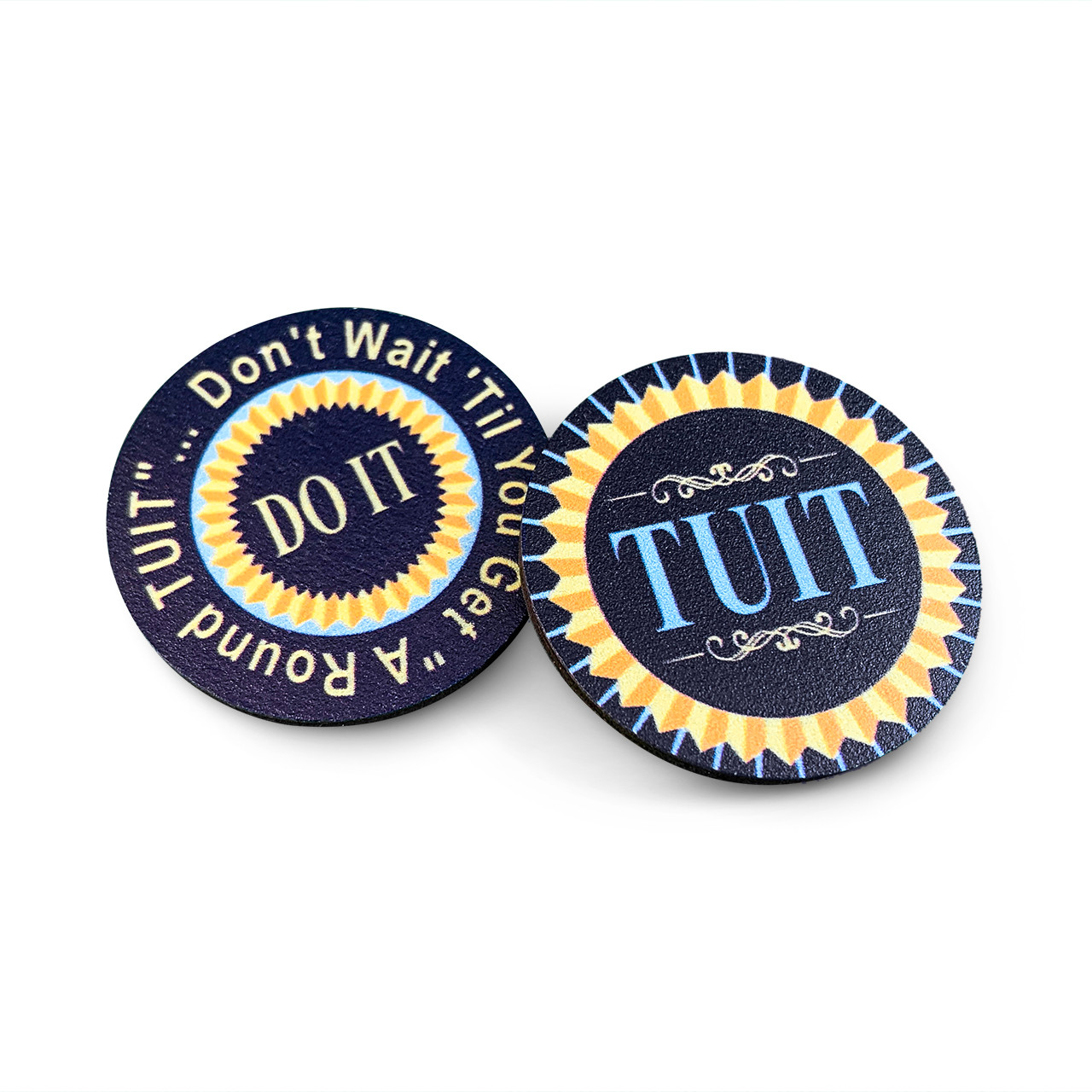Brain Science of Procrastination and 12 Procrastination Tips
Thanks to the Hidden Brain podcast, I learned about the Character Lab’s studies on procrastination. I’d already been sensitized to the topic by loved ones with ADHD who find it insanely difficult to jump right into a task. And, although I’ve sold thousands of “round TUITS,” I realize that reminding people to “just do it” (not wait ’til they “get around to it”), is not particularly helpful. The brain science of procrastination suggests that procrastinators have deep reasons for putting off a task, not addressed by trite procrastination tips.
Why We Procrastinate
Research finds that emotions are the primary driver of procrastination. Experts say procrastination is the body’s attempt to protect itself from negative feelings like dread, incompetence, insecurity, and stress. When thinking about big tasks, the brain’s amygdala sets off a panic response causing a “FLIGHT” reaction. Even worse, the first act of procrastinating causes more negative feelings, exacerbating the situation. Ultimately, procrastinators have two options:
- Make tasks less daunting and threatening
- Alter the reaction to cumbersome tasks
In other words, the brain science of procrastination suggests that we can either change the situation or our reaction to the situation.
Procrastination Hacks for ADHD
Another common time-management tip promoted by Brian Tracy encourages procrastinators to “Eat the Frog,” to do the most difficult task first thing in the morning. The advice originates with Mark Twain who famously said, “If the first thing you do each morning is to eat a live frog, you can go through the day with the satisfaction of knowing that it is probably the worst thing that is going to happen to you all day long.” Unfortunately, those with attention disorders find this procrastination tip completely unhelpful, as well. It’s not that they don’t want to “Eat the Frog.” Rather, the whole prospect of tackling an entire project is simply too much. Going back to the emotional response, we understand that putting a task may create less angst and more happiness, than getting to work. Instead of jumping in whole hog, or whole frog in this case, try these tips:
Make tasks less threatening or overwhelming
Those skilled in managing ADHD or random tendencies toward procrastination have likely found a host of strategies that help make large projects more manageable. For instance, they might:
- Start chunking — divide tasks into tiny subtasks
- Identify some easy-to-do tasks
- Start the day with an easy task, or by doing something pleasurable
- Choose a Start Date to take the first steps, rather than focusing on a Due Date for completion

Round TUIT Tokens $24.00 BUY NOW
“Keep starting – finishing will take care of itself. If you must worry, worry about starting, never worry about finishing.”
~ Dr. Neil Fiore
Manage reactions to difficult tasks
In addition to breaking large projects into a series of smaller, less scary steps, procrastinators often need to play some mind games with themselves, to minimize the paralyzing negative emotions. For instance:
- Accept that failure is part of the process. Be prepared for a few false starts and try to get back on track after you do.
- Add tasks to your list that are easy to cross off. The act of crossing something off your list is somehow more satisfying than it ought to be.
- Way over-estimate the time needed for a task. Then if you complete the task in less time than anticipated, you can celebrate your success.
- Schedule “NO SHOULD” days. That is, give yourself a day with nothing you “should do.”
- Identify the negative emotions that prompt procrastination, understand them, and journal about them.
- Show yourself compassion. After all, being hard on yourself layers on additional negative emotions, making the threat more intense.
Develop new norms and processes
To set yourself up for success, consider these additional procrastination tips:
- Find an accountability partner — find a person to check in with and keep you on track. A number of online services can set you up with a virtual work buddy, including Flow Club, Focusmate, and WorkBuddiesOnline.
- Remove distractions — give yourself a boost by eliminating easily accessible distractions and triggers. Remove phone apps or limit internet connectivity for a period of time using tools like Freedom.to.
Procrastination Tip: No Need to Dump the TUITS
Going back to those small round TUIT tokens, I’ve wondered if we should stop distributing them altogether. I still like them as a reminder and the word TUIT is kind of catchy. With a greater appreciation of the paralyzing emotions around doing all of “IT,” I prefer to think of the I.T. as an Initial Task. Finishing each small initial task will create a sense of accomplishment, eliminate some of the negative emotions, and allow steady progress on the daunting task you’ve been avoiding.

